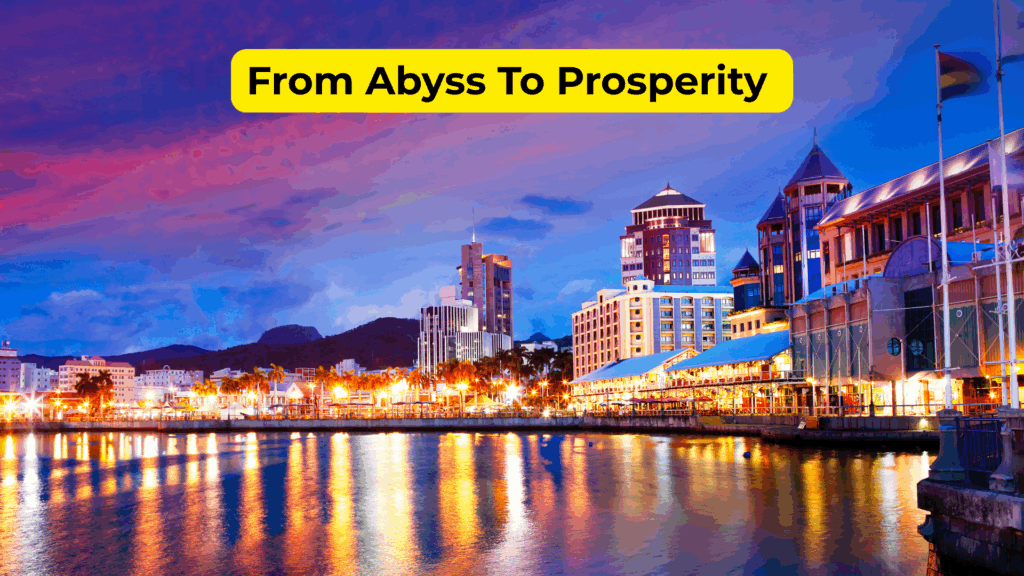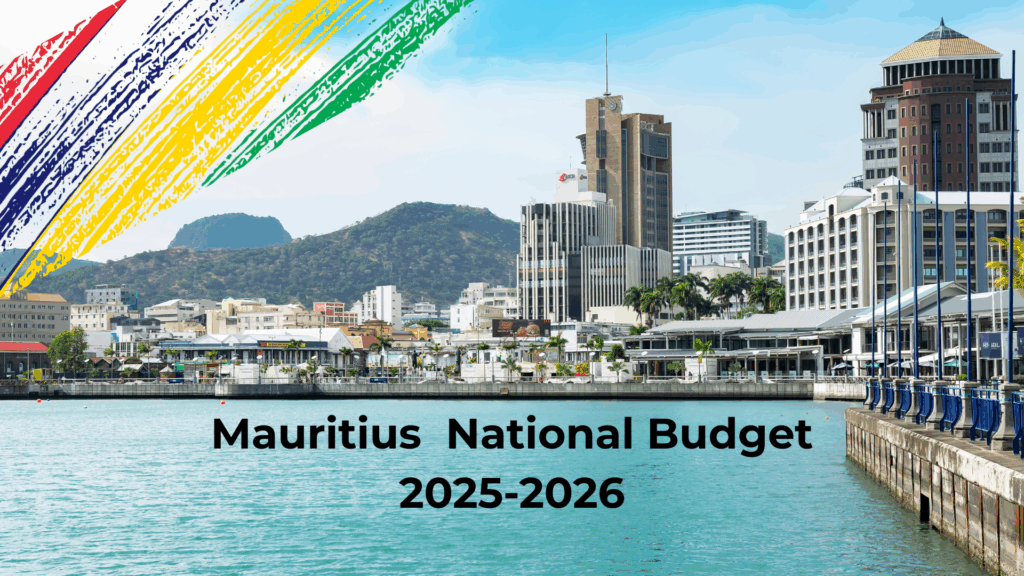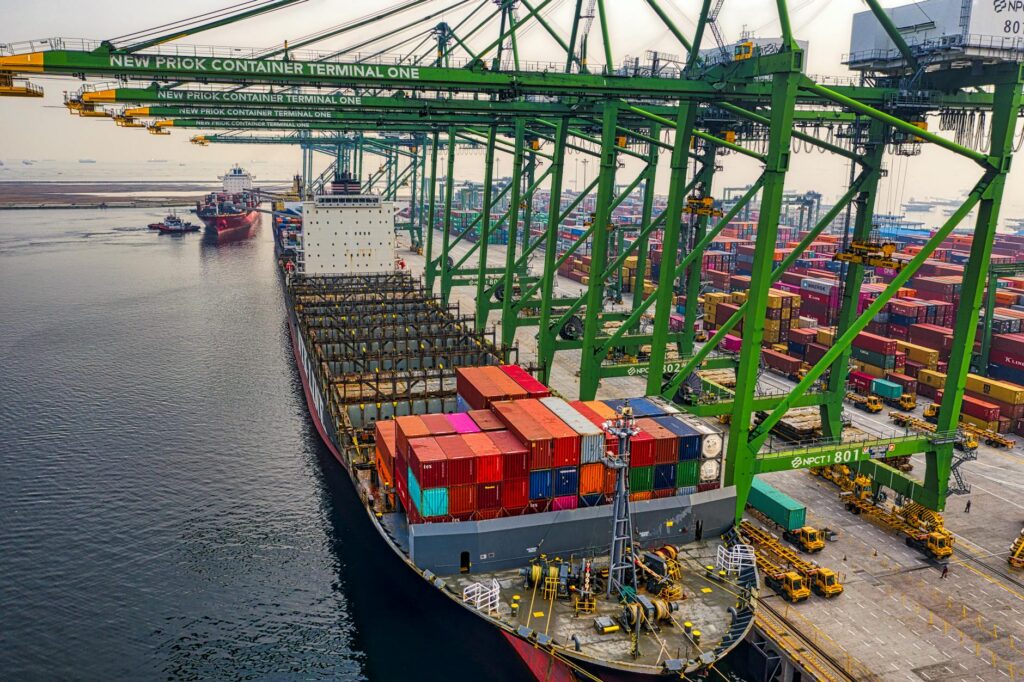Mauritius Budget 2025 marks a turning point for the country as it tackles high public debt, inflation, and slow economic recovery.
With the theme “From Abyss to Prosperity,” the budget sets bold goals around innovation, social equity, and fiscal consolidation.
It responds to growing domestic pressures and global economic uncertainty while aiming to rebuild confidence across key sectors.
From tax reforms and SME support to pension age changes and infrastructure investment, this budget affects every citizen and business.
In this blog, we break down the Mauritius Budget 2025 in simple terms, highlighting key takeaways, sector impacts, and expert insights.
Economic Context – Where Mauritius Stands Today

Before diving into the key measures of the Mauritius Budget 2025, it’s important to understand the economic environment that shaped it. Budgets are more than numbers—they’re responses to real-world challenges like inflation, public debt, and sectoral imbalances. This year’s budget was crafted amid both domestic pressures and international headwinds, making its context as important as its content.
| Indicator | Value / Status | Notes |
|---|---|---|
| GDP Growth (2024) | +4.7% | Driven by construction, tourism, and financial services |
| Unemployment Rate | 6% | Labour shortages persist across sectors |
| Inflation Rate (2024/25) | 3.8% (actual); 2.6% (average headline) | Affected by imported cost pressures; downward trend noted |
| Public Sector Debt (2024/25) | 90% of GDP | Estimated at MUR 642 billion |
| Budget Deficit (2024/25) | 9.8% of GDP (vs. 3.4% projected) | Roughly MUR 43 billion shortfall, mainly from lower tax revenues |
| Target Debt/GDP (by 2027) | Below 80% | Through rental proceeds from Chagos deal and fiscal consolidation |
| Forecast GDP Growth (2025–2028) | 3.7%–4.0% per annum | Moderate growth expectations moving forward |
| Planned Public Investment | MUR 180 billion (next 5 years) | Focus on infrastructure (roads, water), PSIP strategy |
The Mauritius economy in 2024 posted a 4.7% growth rate, largely supported by tourism, construction, and financial services. However, unemployment remains at 6%, with labour shortages still affecting key industries. Inflation averaged 3.8%, with signs of easing, but cost-of-living concerns persist. Most notably, public debt climbed to 90% of GDP—a staggering MUR 642 billion—while the budget deficit widened to 9.8%, far off the targeted 3.4%.
The government now aims to reduce debt-to-GDP below 80% by 2027 through fiscal consolidation and proceeds from the Chagos deal. A moderate growth forecast of 3.7% to 4.0% annually and Rs 180 billion in planned public investment over five years frame the economic recovery path ahead.
Key Budget Themes – The Core of Mauritius Budget 2025
The Mauritius Budget 2025 is built around three major priorities: economic renewal, social stability, and fiscal consolidation for long-term resilience.
Each theme reflects the government’s intention to rebuild economic momentum while protecting citizens and restoring investor confidence in a challenging environment.
Let’s explore how these priorities have been translated into action across different areas of the national economy and public policy.
Economic Renewal – Laying the Groundwork for a Smarter Mauritius
Mauritius Budget 2025 promotes innovation, digitalisation, and investment in high-growth sectors like ICT, fintech, and artificial intelligence.
Rs 200 million has been allocated to fund research through a National Research and Innovation Institute and other key ministries.
A modern ICT blueprint will guide the country’s digital transformation while a Rs 70 million Tier IV Data Centre is being launched.
In financial services, reforms will introduce e-licensing, centralised KYC systems, and legal recognition of digital trade documents.
Banks, however, face new taxes including a 2.5% domestic operations levy, which may challenge profitability and long-term sector growth.
Social Order – Strengthening Human Development and Social Safety Nets
Mauritius Budget 2025 invests heavily in people, with major funding directed to health, education, housing, and social protection programmes.
Education receives Rs 438 million for infrastructure and Rs 20 million for Special Education Needs, including a student hall of residence.
The healthcare system is being boosted with Rs 18.5 billion, including diabetic care, mosquito control, and new medical recruitments.
The government supports vulnerable families with Rs 660 million and free internet for 7,000 households under the Social Register of Mauritius.
A phased increase of the pension eligibility age to 65 is planned, helping to preserve public finances while managing aging demographics.
Fiscal Consolidation – Restoring Budget Discipline and Investor Confidence
High public debt and a widening deficit make fiscal reform a top priority in Mauritius Budget 2025 and beyond.
The government targets a reduction in debt-to-GDP from 90% to below 80% by 2027 through stricter spending and better revenue management.
New tax bands simplify income taxation while raising the burden for high earners and corporates, especially in banking and property.
Excise duties and VAT base expansion aim to increase state revenue while containing inflation and reducing pressure on essential imports.
MUR 180 billion is earmarked for infrastructure over five years, ensuring growth is supported by strong public investment and service delivery.
Sector Highlights – How Mauritius Budget 2025 Impacts Key Industries
Mauritius Budget 2025 outlines sector-specific measures aimed at driving growth, resilience, and structural transformation across the national economy.
From financial services to tourism, SMEs, and sustainability, the budget introduces new policies that reflect current challenges and future ambitions.
Below is a closer look at how selected industries will be impacted by this year’s policy shifts and funding allocations.
SMEs and Manufacturing – Some Relief, But Not a Game-Changer

SMEs benefit from targeted support like a 5% investment tax credit on equipment and exclusive access to double/triple tax deductions.
Rs 50 million in public contracts is reserved for small businesses, with a focus on empowering local enterprise participation in infrastructure.
Despite these incentives, Mauritius Budget 2025 lacks bold reforms to ease finance, compliance, or scale barriers faced by SMEs today.
In manufacturing, few direct productivity measures were announced, and AI incentives may be too limited to drive major transformation.
Financial Services – Increased Oversight, Higher Taxes
Mauritius Budget 2025 confirms the country’s commitment to its role as a financial hub through regulatory upgrades and legal reforms.
A new Electronic Trade Documents Bill, centralised KYC repository, and digital signature recognition will enhance efficiency and compliance.
However, banks now face a higher tax burden, with a 2.5% levy on domestic income and the removal of the special levy cap.
While reform is needed, the abrupt increase in taxation could affect competitiveness unless matched by investor confidence and regulatory streamlining.
Tourism – High Expectations, Few Immediate Measures

The budget allocates Rs 900 million to the tourism ministry, the largest to date, but clear actionable plans are still missing.
Key issues like air connectivity, labour shortages, and coastal erosion remain unresolved, with promises of solutions deferred to a future blueprint.
A new €3 per night Tourist Fee begins in October 2025, expected to generate Rs 2 billion in annual revenue.
Sustainability receives attention, including Rs 164 million for beach restoration and a Heritage Stewardship Scheme for eco-tourism investment.
Environment and Sustainability – Growing Momentum, Lacking Integration
Mauritius Budget 2025 prioritises the green agenda with Rs 3.3 billion allocated to the Ministry of Environment and Climate Change.
Projects include habitat restoration, marine protection, a Waste-to-Wealth scheme, and a Rs 5 deposit on plastic bottles to reduce pollution.
A Climate Finance Unit will be established to manage funding, but no integrated national sustainability framework has been announced yet.
Despite progress, efforts remain fragmented without measurable KPIs or alignment with global standards like the EU Green Deal or Singapore model.
Real Estate – Investor Sentiment Faces Headwinds
Mauritius Budget 2025 introduces major changes that could significantly impact real estate investment, particularly among foreign buyers and developers.
Registration duty for non-citizens acquiring property under EDB schemes doubles from 5% to 10% for properties above USD 500,000.
A capital gains tax of 30% or 10% of property value (whichever higher) will apply on resale by non-citizens or promoters.
The end of fiscal incentives under the Smart City Scheme may dampen future development and reduce foreign direct investment (FDI) inflows.
These measures raise concerns about long-term real estate competitiveness and could slow down momentum in the construction sector.
ICT and Digital Economy – Strong Vision, Execution Still Key
Mauritius Budget 2025 reinforces the importance of digital transformation with strategic investments and institutional reforms in the ICT sector.
Rs 550 million is allocated to training and reskilling talent, addressing the growing demand for digital and AI capabilities.
A new Public Sector AI Programme (Rs 25 million) and a Tier IV Government Data Centre (Rs 70 million) will be launched.
Cybersecurity will be enhanced through a national operations centre based on international best practices to increase digital resilience.
While vision is strong, execution and workforce readiness will determine whether Mauritius can compete globally in the digital economy.
Outer Islands – Boosting Inclusion and Connectivity
Mauritius Budget 2025 allocates Rs 5.785 billion for Rodrigues, with a focus on boosting infrastructure and regional integration.
A new runway is planned for improved air access, helping stimulate tourism, trade, and social mobility for island communities.
For Agalega, Rs 25 million is committed to developing a sustainable masterplan, though detailed strategies are still pending.
These investments aim to close geographic disparities and promote inclusive growth, but long-term success will depend on project execution quality.
What Mauritius Budget 2025 Means for You
Mauritius Budget 2025 doesn’t just focus on high-level reforms—it introduces real changes that affect individuals, businesses, and investors directly.
Understanding how these measures apply to your situation is essential for planning ahead, whether you’re a citizen, entrepreneur, or foreign investor.
Below is a breakdown of how the budget’s reforms may impact different groups in practical and meaningful ways.
For Citizens and Households
Income tax has been simplified, with 0% up to Rs 500,000 and greater relief for lower- and middle-income earners.
VAT on essential items like infant food, canned vegetables, and frozen goods is removed—helping ease household costs.
Public healthcare and education are being upgraded, including diabetic care programs and improved SEN services.
Pension age is rising gradually to 65 over five years, which may affect retirement planning for younger workers.
Social aid and internet subsidies will reach thousands of vulnerable families under the Social Register of Mauritius.
For Businesses and Entrepreneurs
SMEs can claim a 5% investment tax credit and access exclusive public contracts worth Rs 50 million.
Digital service providers, including foreign companies, will now be subject to VAT from 2026—important for online sellers.
Higher excise duties on alcohol, tobacco, and sugar-based goods could affect distributors and FMCG pricing models.
Wage compensation support will offer some relief to SMEs, construction, and BPO sectors amid ongoing cost pressures.
For Financial Sector Stakeholders
Banks face higher taxes, including a new 2.5% charge on domestic income and removal of caps on the special levy.
New digital compliance laws and centralised KYC systems will enhance operational transparency but may increase setup costs.
Bullion banking and family office licensing offer new private wealth services, adding depth to Mauritius’ financial offerings.
For Foreign Investors and Property Buyers
Non-citizens buying real estate under EDB schemes will pay 10% duty instead of 5% for properties above USD 500,000.
Capital gains on resale now taxed at 10% of value or 30% of profit—whichever is higher.
Smart City incentives are removed, potentially cooling demand in the luxury and premium residential market.
Tourist fee of €3 per night may impact high-volume accommodations and pricing strategies for hospitality providers.
Our Opinion – Honest Review of Mauritius Budget 2025
Mauritius Budget 2025 makes a serious attempt to stabilise public finances while investing in people, innovation, and national infrastructure.
The budget reflects a pragmatic approach, acknowledging high debt and deficit levels while committing to restore fiscal discipline by 2027.
Major investments in AI, healthcare, and climate initiatives are commendable, and they align with long-term national goals of resilience and inclusion.
That said, for SMEs, the measures are helpful but modest—they offer tax relief but miss the chance for bold structural reform and finance access.
The push toward digital transformation is welcome, though effective implementation will depend heavily on workforce readiness and strong project delivery.
Tourism, a vital industry, was largely sidelined—without clear action on airlift, labour, or infrastructure, the sector remains in limbo.
Raising the pension age gradually makes fiscal sense, but vulnerable workers will need transition support and better healthcare access to adjust.
Overall, Mauritius Budget 2025 lays a solid foundation—but its success will depend on leadership, execution, and sustaining business confidence.
Conclusion – Mauritius Budget 2025 at a Crossroads
Mauritius Budget 2025 sets a structured, cautious course to address rising debt, global uncertainty, and domestic social needs.
It introduces reforms in tax policy, innovation, pension systems, and public infrastructure while aiming to balance fiscal consolidation with growth.
The budget sends a message of responsibility—acknowledging difficult realities while trying to build confidence in public institutions and future planning.
That said, execution will be everything. Policy intentions must quickly translate into real outcomes, especially for SMEs, tourism, and digital economy.
There’s no silver bullet, but this budget lays groundwork for long-term resilience—if the government delivers what it has promised.
Mauritius Budget 2025 isn’t perfect, but it’s directionally sound—focused on restoring balance, protecting people, and preparing for the next economic chapter.
What’s Your Take on Mauritius Budget 2025?
Mauritius Budget 2025 introduces wide-reaching reforms that could shape our economy for years. But how do you see its impact?
Do you believe these measures will drive real progress—or are they too cautious for the challenges ahead?
If you’re a business owner, investor, policymaker, or citizen, your perspective matters. Share your thoughts in the comments below.
👉 Got questions about how this budget affects your business or sector? Feel free to reach out—I’m happy to connect.
And if you found this blog insightful, please share it with others who want to understand what’s next for Mauritius.



